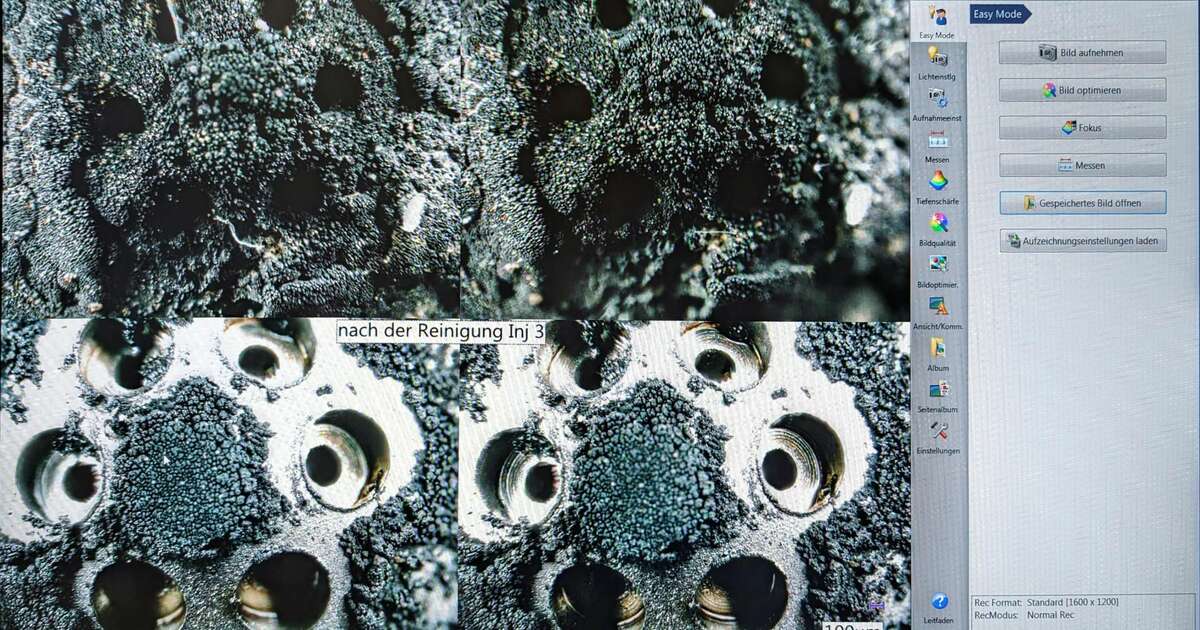We’re all familiar with the colorful boxes at your trusted accessory dealer, which, through their packaging imprint, convey all sorts of promises of redemption for the engine. As a motorcycle journalist, I’m not the only one wondering how this could happen. Why should you add any additives to your fuel to make your engine run better and why does it matter with motor oils whether there are any additives in them or not?
The truth is: in daily practice, the average person hardly has a chance to directly feel the effect of additives – except for the so-called problem solvers, who, for example, clean a misplaced fuel line or soot-covered valves. Most additives develop their effects over long periods of time, which is why you have to look at their basic mechanisms of action in the laboratory or on the test bench.
As a trained chemist, I probably have a different view of details than if you could only trust manufacturers’ promises. Another reason to visit the engine additive developer’s lab and talk to the head of research there. German additive developer Liqui Moly is one of the largest companies in the world and has been working in the field of various additives and lubricants since the 1950s. Their catalog includes more than 4,000 products for engine well-being. My first thought was “4000?!” Isn’t that a bit excessive?” David Kaiser, head of R&D at Liqui Moly, confirms: “We reach 4,000 only if we take into account the different packaging sizes. But we already have everything in our software that can improve the life of vehicle engines.
why all that? Simply put, additives are chemicals added in small quantities to oils and fuels to improve or achieve certain properties. In principle, they work in a similar way to vitamins found in the human body.
For motorcyclists, there are some specific benefits to using additives:
- Cleaning and Protection: Some additives act as cleaning agents that remove deposits in fuel lines, injectors and combustion chambers. Dias results in more efficient combustion, which ultimately increases engine performance and efficiency.
- Reduce wear: Additives help reduce wear on important engine parts. This can extend engine life, especially in older engines or motorcycles operated in extreme conditions.
- Better lubrication: Additives used in motor oils can improve lubricating properties, which is especially important when starting cold or at high operating temperatures. This literally means smoother engine running and less mechanical stress.
- Fuel efficiency and reduced emissions: By improving combustion efficiency, additives help reduce fuel consumption and reduce emissions. This also increases the range.
- Adaptation to modern fuels: With the gradual introduction of e-fuels, additives play an important role in adapting older engines to these new fuels without the need for major mechanical modifications.
The use of additives is not about performance and engine tuning, it is about engine protection and maintenance. The application is very simple: the relevant product is usually simply filled into the tank and mixed with the fuel there.
An impressive example is shown in our cover photo with two micrographs of dirty injection nozzles before and after operation with a suitable cleaner from Liqui Moly. The 3D scan before and after treatment in the following image also clearly shows how these additions work without requiring a single mechanic’s hour or even the cost of replacement parts.
Flushing your engine with engine system cleaner (simply adding it to the fuel tank) can work small miracles, especially after a long mileage. This allows deposits to be removed from the entire fuel system, which is a prerequisite for smooth engine operation, even and complete combustion, low consumption and low emission values. If the engine is running “weird”, the contents of that little engine are definitely worth a try before you take everything apart and spend hours of costly troubleshooting.
Liqui Moly also has something in its program for classic car enthusiasts who still use the original valves. Given the typical mileage of these vehicles, one bottle of a suitable lead replacer is sufficient to protect the valves from corrosion caused by unleaded gasoline for an extended period.
The thing that really works is stopping the oil loss. Over the years, rubber seals become brittle, lose their elasticity and thus no longer have the desired sealing properties. Oil loss plug is added to the engine oil and in this way reaches the seals and restores their elasticity. This is definitely worth a try before undertaking a complex and expensive sealing service.
But David Kaiser also points out some of the “miracles of the regulars’ table” and says: “Of course there are no real miracles. There are simply no secret additives that reduce consumption by 20 percent or increase engine performance by 10 percent. This is also true for some of the promises made by oil manufacturers Lubrication. Of course, by using particularly low-viscosity oils, you can reduce friction in the engine and, most importantly, do something good for the service life of the engine. This is exactly why we have such oils in our range. Apart from instant solutions to problems, “such as system cleaners Engine, additives primarily affect the wear and tear behavior of engines. Anyone who wants to have a longer relationship with their car will certainly benefit from it.”
Side step: Liqui Moly has recently significantly expanded its production capacity in Ulm. Three new additive packaging systems were installed and additional office space was built at a cost of €8 million. This means that 481,000 cans will be filled every week instead of the previous 346,000 cans. Investments also include prefabricated construction, transportation technology and new packaging robots. Liqui Moly supplies its aids, additives and oils to 150 countries and has grown from a small company into a global player that has been part of the Würth Group since the beginning of 2018.

“Total coffee aficionado. Travel buff. Music ninja. Bacon nerd. Beeraholic.”







More Stories
When the food comes out of the container
Writing code and ordering pizza: How pioneers pushed Bitcoin forward
Lidl now warns against these scammers – 5 minutes